Search Images
Browse Content (p. 1378)
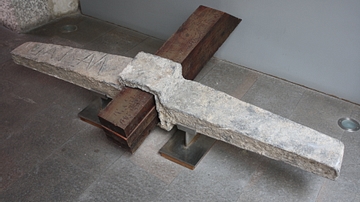
Image
Roman Stone Anchor
A Roman stone anchor from the coast of Saguntum (Sagunto), Spain. 1st century CE. (Archaeological Museum, Sagunto)
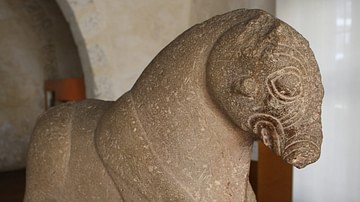
Image
Iberian Bull Sculpture
Iberian-Celtic bull sculpture from Saguntum (Sagunto), Spain. 4th century BCE. (Archaeological Museum, Sagunto)
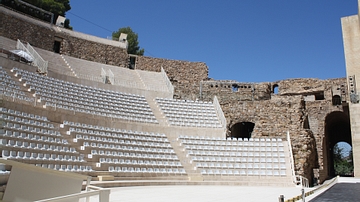
Image
Roman Theatre, Saguntum
The restored 1st century CE Roman theatre of Saguntum (Sagunto), Spain.
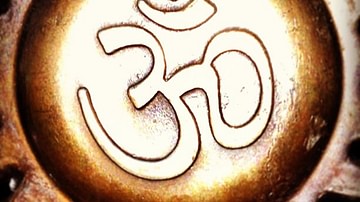
Image
Om
The Om (Aum) is an important spiritual symbol in Indian religions. It is often used as a reference to Brahman (the Universal Intellect, the Ultimate Reality).
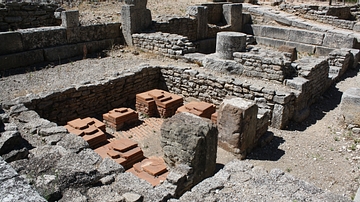
Image
Wine Smokehouses, Glanum
Two wine smokehouses from Hellenistic Glanum in southern France. The bricks were used to create a raised floor through which fires could send smoke to better preserve wine. 2nd-1st century BCE.

Image
Twin Imperial Temples, Glanum
The remains of the twin temples dedicated to the imperial cult at Glanum, southern France. c. 20 BCE. The corner of the smaller temple has been faithfully reconstructed based on damged original finds.
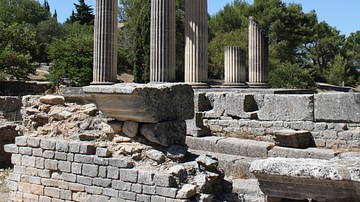
Image
Temple of the Imperial Cult, Glanum
The faithfully reconstructed corner of the smaller of two twin temples dedicated to the imperial cult at Glanum, southern France. c. 20 BCE.

Image
Heated Flooring, Roman Baths at Glanum
A portion of the brick underfloor system (hypocaust) which allowed the rooms of the Roman baths to be heated at Glanum, southern France. 1st century BCE to 1st century CE.
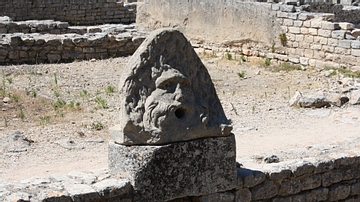
Image
Mask Fountain, Swimming Pool of Glanum
The stone theatre mask fountain (replica) which filled the swimming pool of the Roman baths at Glanum, southern France. 1st century BCE to 1st century CE.
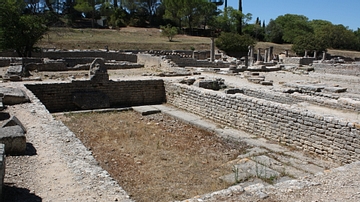
Image
Swimming pool, Glanum
The swimming pool of the Roman baths at Glanum. 1st century BCE to 1st century CE. The pool was filled with water from a theatre mask, a replica of which can be seen here at the far side of the pool.